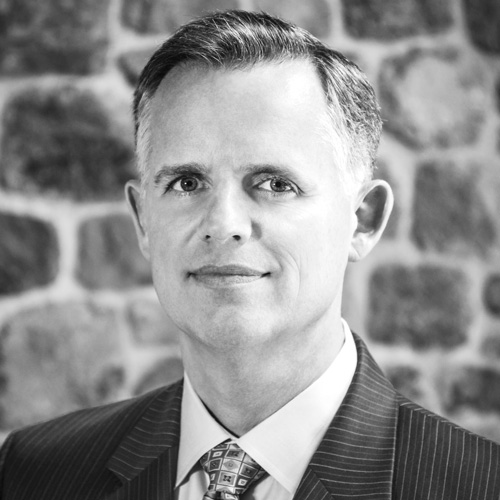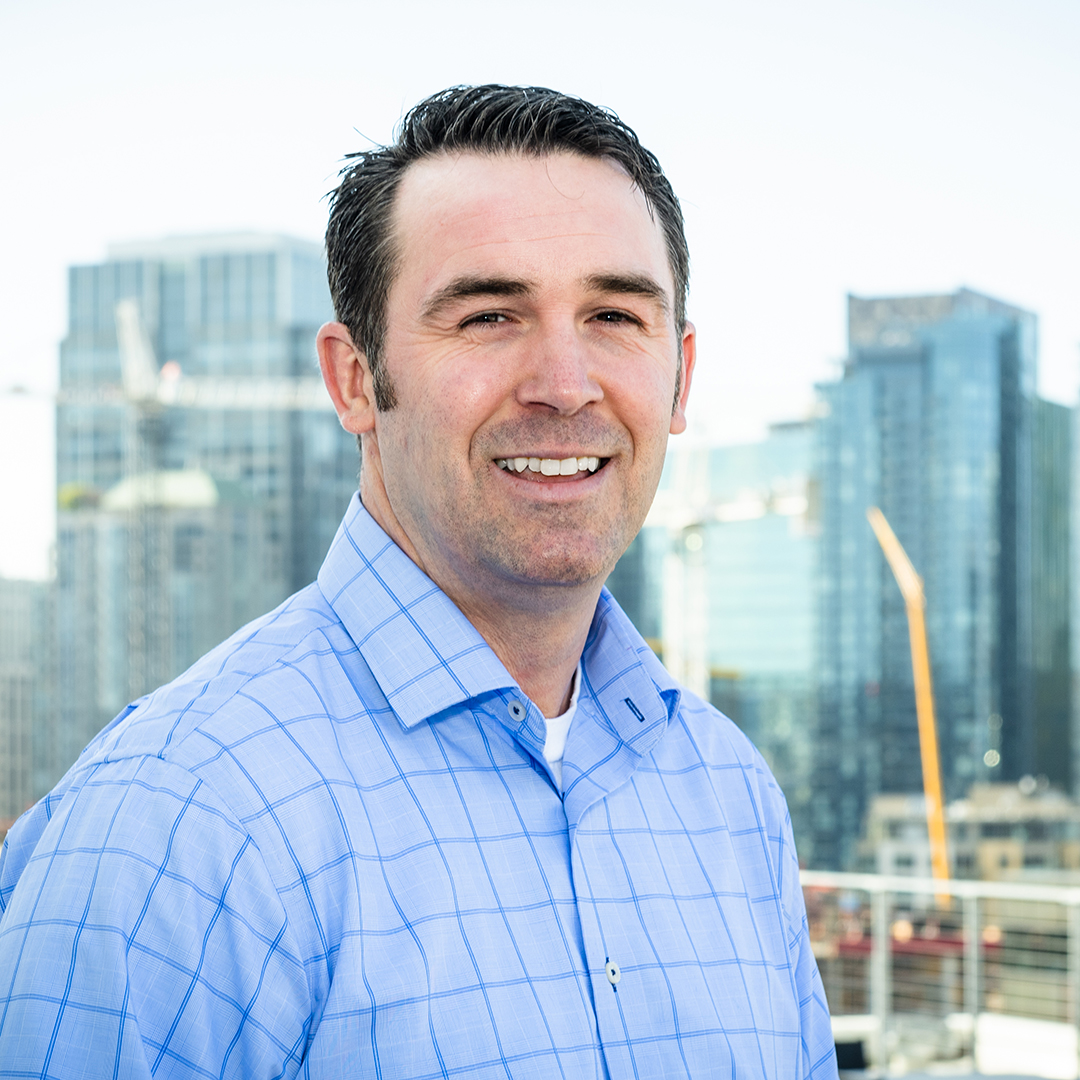There’s a terrible blend of intense stress and surreal quiet that comes with an extended stay in a hospital. The beeping machines and constant whir of healthcare professionals milling about portend the potential of an emergency at any given moment; however, long-term patients may face patches of seemingly endless waiting.
In May 2013, Scott Landau and his wife, Megan, were told that she would spend weeks or even months at Mount Sinai Hospital. Megan had been pregnant with twins, and about 29 weeks gestation, she was told she had preeclampsia and that she’d need to stay in the hospital until she gave birth because of the potential for complications. “We were looking at up to ten weeks in the hospital, not able to leave the bed,” Landau says.
Despite the stress, fear, and concern, Landau, then an assistant US attorney, saw the way everyone in the building was working hard to make a difference in the lives of others. “From the doctors and nurses to the staff, everybody was unbelievably caring, attentive, and professional,” he says. And once his wife gave birth six weeks early and the entire family finished their recovery at the hospital, Landau knew he needed to find a way to join the organization and make a difference as well.
Prior to that traumatic experience, Landau’s legal focus had been quite different. “Nobody grows up thinking they’ll become an in-house lawyer at a hospital; everyone thinks it’s just medical malpractice work, but it is much more than that,” he says. “I wish I’d known earlier what an incredible job it could be.”
In college, he decided that if he couldn’t be a rock star, he might as well become a lawyer so he could represent them. After earning his JD from New York University School of Law, he joined Proskauer Rose LLP because of its renowned entertainment litigation practices.
After six years at Proskauer working on everything from sports and music disputes to land use and financial services matters, Landau found himself increasingly drawn to the healthcare cases that crossed his desk. The next opportunity came in the form of an offer from the US Attorney’s office in the eastern district of New York. “That was a dream job for a litigator,” Landau says. “There’s really nothing quite like getting up in court and saying, ‘I represent the United States of America.’ That just never gets old.”
Across six years as an assistant US attorney, Landau worked on constitutional cases and environmental cases, all the while keeping his fascination with healthcare matters. “I got amazing firsthand litigation experience that really made me the lawyer I am today,” he says. Although he was fascinated by the legal issues, Landau became a close study of the underlying science and health as well. And while that background made a job at Mount Sinai a logical fit, it was the personal experience he and his family had at the organization that made the fit perfect.
In April 2014, Landau became assistant general counsel of Mount Sinai Health System, an integrated healthcare system in New York comprising more than thirty-eight thousand employees, eight hospital campuses, a world-renowned medical school, and a large regional ambulatory footprint.
One of the larger healthcare providers in the country, Mount Sinai serves more than ten thousand patients a year, many of whom live below the poverty line. In his role, Landau’s primary focus is regulatory compliance, particularly concerning the healthcare fraud and abuse laws.
“I spend a lot of time advising clients on structuring transactions and programs to ensure compliance with the fraud and abuse laws,” he says. In addition, the system puts his background in litigation to use, both directly representing and defending the system and its employees, and working with outside counsel.
In addition, Landau has added advising on population health initiatives to his purview in recent years, working with Mount Sinai’s innovative providers and administrators on initiatives to improve the way that healthcare is delivered and paid for. “We’re looking at ways of transforming healthcare towards value-based care with a focus on care quality and patient outcomes rather than just the quantity of services provided,” he says.
“As a technology partner, it’s been a pleasure working with Scott and Mount Sinai to develop innovative eDiscovery solutions,” says Casey Hansen, regional manager at OpenText. “He has a true vision for advancing legal operations, creating efficiencies, and aligning stakeholders.”
Many systems and hospitals around the country have been working to make that transition, a goal Mount Sinai embraces despite its challenges. “Healthcare in the United States is at a critical inflection point,” he says. “It’s too expensive, and the current fee-for-service delivery model is simply not sustainable in its current form.” By helping providers navigate these changes, Landau and other lawyers like him can help organizations like Mount Sinai remain true to its mission while finding new and innovative ways to deliver exemplary healthcare.
One major legal challenge comes in ensuring these drastic changes in healthcare delivery and payment complies with a regulatory environment that was created for a fee-for-service-based system and in many ways hinders the kinds of innovations and collaborations that are necessary to the future of healthcare. “They’re like analog regulations for a digital world,” Landau says. “Until there is thorough regulatory reform, we have to work to ensure that any new care delivery and payment models still comply with the old rules and regulations.” For example, patients with chronic diseases such as diabetes or congestive heart failure could greatly benefit from coordinated care between providers, including sharing data, remote monitoring, and alignment of incentives based on care quality and efficiency.
“Hospitals are extremely complex, vibrant ecosystems,” Landau says. “Lawyers are critical to the whole system by helping medical professionals navigate the complicated healthcare regulatory landscape so that they can focus on providing great patient care. Because of my personal experience here with my wife and children, I lived that exemplary patient service, and now I work every day to help more families in need gain access to it.”
Legal Support for Healthier Lives
The Mount Sinai Medical Legal Partnership (MSMLP), is an independent nonprofit charity, which was formed in 2015 with the goal of helping Mount Sinai’s most vulnerable patients address the nonmedical issues that often contribute to their poor health. MSMLP is based on the vision of Mount Sinai’s general counsel Beth Essig.
MSMLP helps the neediest patients get direct access to pro bono legal services so that they can address and overcome their legal issues. There are now legal clinics in hospitals across the system where lawyers from pro bono legal organizations and private law firms regularly work with patients on topics ranging from housing to immigration.
“I’m on the advisory board, and I’m really proud that we were able to take this vision and make it into a reality, to augment the incredible medical care that’s provided here by helping patients address and resolve their legal issues,” says Scott Landau, Mount Sinai Health System’s associate general counsel. “There’s no limit to the work the partnership can achieve, depending on how much money we can raise and how much support we can get.”


